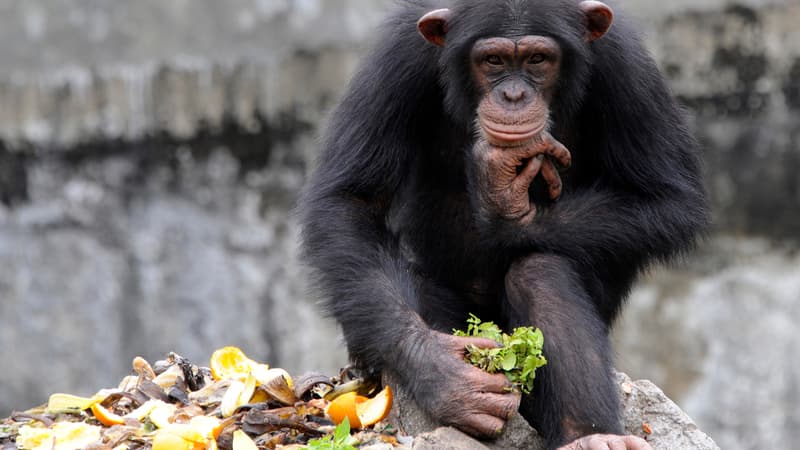By eating ripe fruits loaded with ethanol, chimpanzees consume a wild state, the equivalent of several vessels of alcohol a day, advances this Wednesday, September 17, a study on the possible reasons of our inclination for drinking.
Directed in African forests where these animals live, the study supports the theory that men have inherited to monkeys this attraction, as well as their ability to metabolize alcohol, although toxic.
Naturally alcoholic fruits
By collecting fruits generally consumed by chimpanzees and measuring their ethanol levels, an alcohol form produced by sugars fermentation, researchers could establish that our closest cousins were exposed to this substance through their diet.
And not just a little. According to their calculations based on the measured content and the large amount of fruits ingested per day by these primates, they evaluate that their daily consumption is about 14 grams of ethanol.
“We can say that it is equivalent to a pint” of beer for a human, which weighs much heavier than a chimpanzee, explains Aleksey Maro, the main author of the study published in the journal Science Advances.
Are they drunk? The question remains open, because if this consumption “is not insignificant”, “it is very diluted and more associated with food,” says this doctoral student in systems biology at the University of California in Berkeley.
The “drunk monkey” hypothesis
Be that as it may, these experiences carried out in Uganda and Ivory Coast made it possible to show “for the first time that our closest living parents consume daily doses of physiologically significant alcohol,” he continues.
An element that consolidates the hypothesis of the “drunk monkey” formulated more than ten years ago by an American biologist, Robert Dudley, also co -author of the study.
According to this postulate, the appetite of the human being for alcohol, as well as his ability to metabolize it, would come from the fact that our primates ancestors were exposed to this substance daily through their food diet.
“The name is poorly chosen, we prefer to call it the theory of the mouth of evolutionary wood,” jokes Aleksey Maro.
Received for the first time with skepticism by several experts, this theory had gained popularity in recent years, several research works have shown interest in certain monkeys for alcoholic substances or very mature fruits loaded with ethanol.
Still vague implications
For Nathaniel Domy, professor of anthropology and biology of evolution at Darmouth College, questioned by the AFP, the study published on Wednesday is “a true Force Tour” but poses “many new questions”, particularly in the biological and behavioral consequences of such a chronic exhibition in these monkeys.
Or in the true attraction of these primates due to this psychoactive substance, researchers could not determine whether or not the fruits with a high ethanol content.
Far from being anecdotal, this issue should remain falling to better understand the origins of human alcohol consumption and better evaluate their potential risks and benefits, says Aleksey Maro: “We can learn more about ourselves through chimpanzees.”
Source: BFM TV


